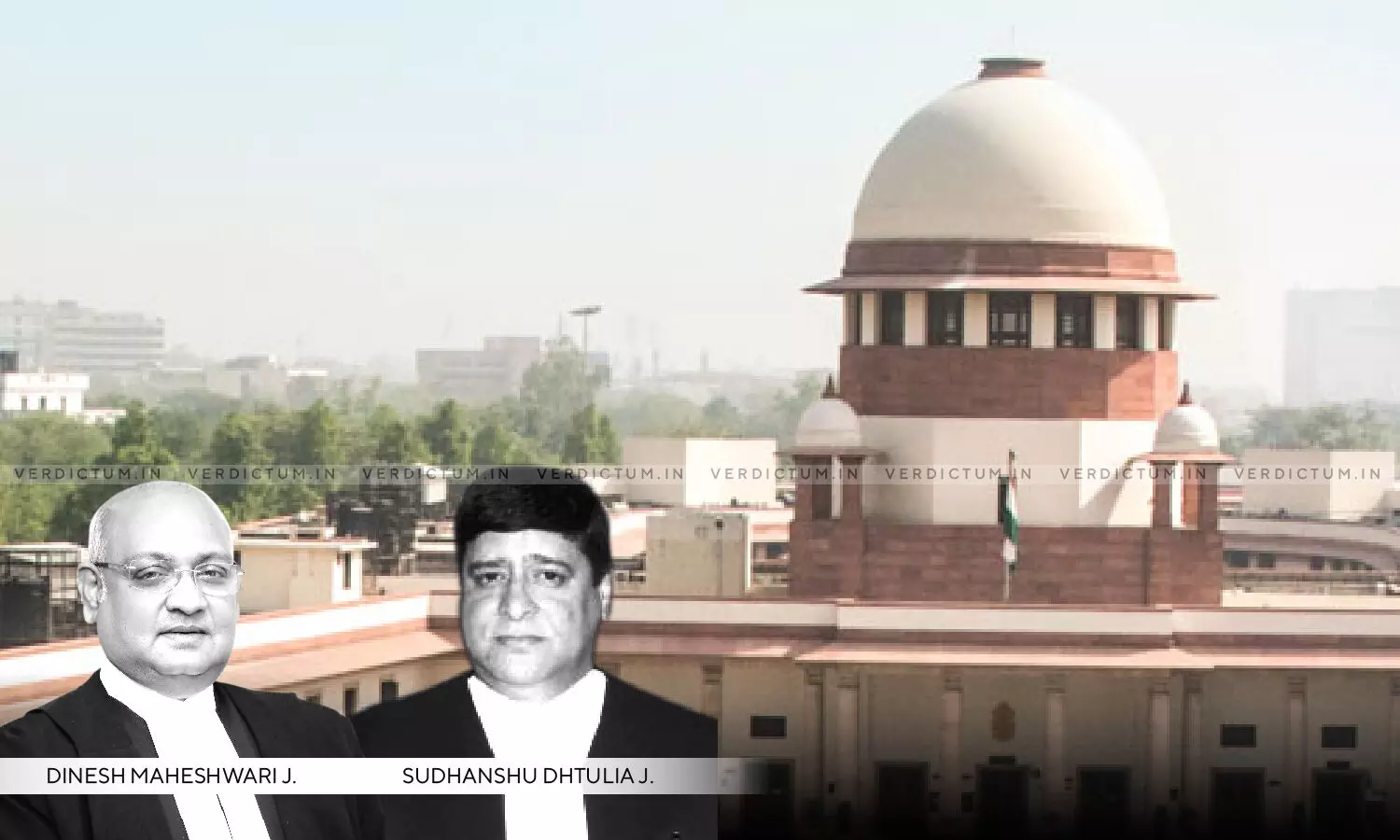
Reservation To Residents Is Permissible But 75% Of Total Seats Is A Wholesale: SC Directs MP Govt To Fix Seats Again For B.Ed & M.Ed Courses
 |
|The Supreme Court has directed the Madhya Pradesh Government to reconsider its reservation policy mandating 75% reservation for State residents for admission in Veena Vadini Samaj Kalyan Vikash Samiti, a training institute that trains teachers for B.Ed and M.Ed courses. The Court has further directed the authorities to fix the seats again for the next academic year since the academic session for the year 2022-23 has already commenced.
“The State Government may examine the data of last few years in order to come to a realistic finding as to what should be the extent of these reservations. A wholesale reservation as we have seen is not serving any purpose rather it frustrates the very purpose of the reservation”, the Court observed.
A Bench of Justice Dinesh Maheshwari and Justice Sudhanshu Dhulia while agreeing to the validity of the reservation for the residents of the State, questioned the purpose that the reservation fulfilled, as the seats remained vacant.
“Though the State is within its right to reserve seats for its own residents, but while doing so, it must keep the ground realities in mind. Keeping 75% of the seats reserved for the residents of Madhya Pradesh is too high a percentage, and as the figures for the last two years indicate, it is also not serving any purpose. The number of seats from the next academic year shall, therefore be fixed again for residents and non-residents, keeping the observations made by us in this order. We make it clear that though reservation in favour of residents is permissible, yet reservation to the extent of 75% of the total seats makes it a wholesale reservation, which has been held in Dr. Pradeep Jain and Others v. Union of India and Others (1984) 3 SCC 654 to be unconstitutional and violative of Article 14 of the Constitution of India”, the bench observed.
Advocate Puneet Jain appeared for the petitioner and Deputy Advocate General Ankita Chaudhary appeared for the respondents.
In the matter, the institute stipulates that it was facing extreme difficulty in making admissions to the courses, because of an existing admission policy or the guidelines of the State of Madhya Pradesh.
As per clause 1.5(a) of the Admission Process and Guiding Principles 2022-2023, the division of seats for the courses mandates 75% reservation for the residents of the State while only 25% for candidates outside the State.
The data for the last two years provided by the appellants showed that although the entire 25 percent of seats were filled, almost all of the 75 percent of seats reserved for the residents of Madhya Pradesh remained vacant. Resultantly, permission was sought to fulfill the seats from outside candidates, however the same was rejected.
Earlier a division bench of the Madhya Pradesh High Court had dismissed an application for interference sought by the appellants.
The Court then chalked out two questions to be dealt with:
- Whether the State Government can reserve seats for “residents” of Madhya Pradesh.
- If it can, then whether the reservation could be as large as 75% of the total seats for the residents.
The bench, answering the first question in affirmative, raised concerns over the second. While referring to an array of judgments, the Court also referred to Dr. Pradeep Jain and Others v. Union of India and Others (1984) 3 SCC 654, where residence-based reservation in medical colleges was upheld.
While referring to Pradeep Jain, the Court was of this opinion, “This departure from the Rule of selection based on merit was justified on two grounds what one may call as the State interest, which would mean the expenditure incurred by the State in creating the educational infrastructure and the cost of its maintenance and the second was the State’s claims to backwardness”.
“But then we must also remember that in Pradeep Jain as well as in the subsequent such cases referred above this Court were dealing with medical education in India, and the legality of ‘residence requirement’ or reservations based on residence, in MBBS as well as Post Graduate Courses in medical education! The validity of residence requirement was upheld in Pradeep Jain, followed by a catena of decisions of Supreme Court, which also took into account economic factors as well as backwardness of the region while allowing reservation for permanent residents of the State, in medical education. We should not lose sight of this vital fact when we are dealing with the reservations based on residence in other fields of education, as we are doing presently. Whether the justifiable factors of ‘State interest’ and the claim for backwardness of the State or any other factors which were relevant factors for residence reservations in medical education, would be equally relevant in other fields of education or other professional courses is still to be determined”, the bench further noted.
The Court then directed the authorities to keep all the factors in mind while taking a decision in the matter within 2 months and disposed of the appeal.
Cause Title: Veena Vadini Teachers Training Institute (Run By Veena Vadini Samaj Kalyan Vikash Samiti) v. State Of Madhya Pradesh & Ors.
Click here to read/download the Judgment